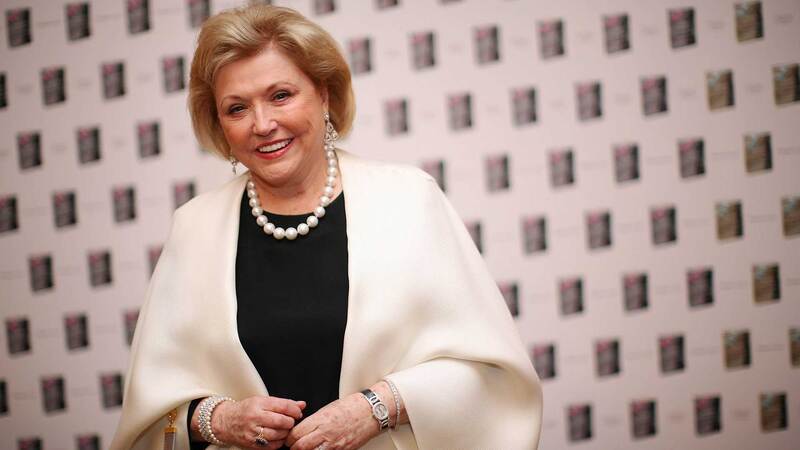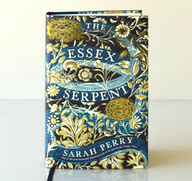You are viewing your 1 free article this month. Login to read more articles.
Review of 2017: the genres
Given the gloomy chat about fiction in the general media, you would be excused for thinking it was dire times for the sector. But 2017 was the third year in a row of growth for Nielsen BookScan’s Adult Fiction category; four of the top 10 of our Revenue High Flyers chart are fiction sub-genres, led by Crime, Thriller & Adventure’s £11.3m gain (to £117.7m); and Fiction had the greatest percentage jump of any of BookScan’s four key categories.
Granted, this needs context. The three successive years of revenue rises followed a 2014 which was Fiction’s all-time TCM low (£322.4m), and the £355.1m sold through the tills in 2017 was £120m down (25.2%) on 2008, he sector’s record year. Print sales of Fiction are rebounding, but they are still some distance away from the sector’s physical heyday.
In a solid but unspectacular “meh” 2017, which was devoid of big break- out trends or blow-the-doors-off bestsellers, it didn’t take much in growth terms to be the best-performing of the four main BookScan categories. Fiction’s climb of 1.7% beat the marginal gain of Adult Non-Fiction: Specialist (+0.6% to £164.9m) and Adult Non-Fiction: Trade’s (–0.6% to £687.4m) and Children’s (–0.03% to £382m) fractional losses. Though we should note that despite its drop, Children’s had its second-biggest annual TCM total since records began.
Actually, the fifth major BookScan category (and the black sheep of the family), Unclassifiable, did have excellent gains, surging 19% to £3.4m. Many of the titles here are indeed unclassifiable, closer to stationery or toys than books. The genre’s top seller last year was Game of Thrones: Oathkeeper (Running Press, 2,900 units), not a book but a miniature sword in a box. (Oathkeeper, of course, is Jamie Lannister’s Valyrian steel longsword which he eventually gives to Brienne of Tarth). But some Unclassifiable entries are books for which a publisher has failed to key in any metadata.
There was little change in format. Hardback sales were up 0.56% to £539m, while paperbacks slipped just 0.01% to £1.1bn. As in recent years, average selling price rose. In hardback it shot up a whopping 56p, to £10.68—a 5.5% jump. Paperbacks had a shallower 1.8% rise, to £7.56.
The Children’s category’s ever-so-modest decline does break a stretch of three consecutive years of best-ever value hauls through the TCM. But as we can see, 2017’s totals are 21% up on where the kids’ sector was a decade ago.
Getting schooled
In 2016, the bulk of the sales growth came from Children’s Fiction, but last year study guides took over. Or rather, continued their streak: 2017 was the fourth consecutive year the overarching School Textbooks & Study Guides (ST&SG) product class claimed a best-ever TCM total. Three of the five ST&SG sub-categories also recorded all-time highs, led by Literature, Arts & Humanities’ 11% jump to £24.2m.
Religion has had back-to-back record £20m-plus years through BookScan, with a big area of growth in Non-Christian Religions. The sub-category zoomed up 21% to £3.3m, led by an Oxford University Press translation of the Qur’an (10,300 units). Dishearteningly, the top earning title in all of the Religion category is the self-published extremist tome, Mohammed’s Koran: Why Muslims Kill for Islam (£101,000), written by ex-English Defence League leader Tommy Robinson and Peter McLoughlin, a former academic whose Muslim-baiting views have seen him banned by Twitter, Facebook and YouTube.
Indicative of the solid but unspectacular 2017 is the fact that only five sub-categories hit an all-time TCM low. And two of those—Computing & IT and Dictionaries & Reference—have been in long declines.
Yet, General & Literary Fiction (G&LF) plummeted to a rock-bottom £131.7m. That’s a wince-inducing £87.8m down on G&LF’s value at the start of the decade. Like many categories in 2017, the hits just weren’t there. Two G&LF titles last year earned more than £1m through the TCM, and both were only a smidgeon into seven figures: Sarah Perry’s The Essex Serpent (Profile) and Neil Gaiman’s Norse Mythology (Bloomsbury) both took £1.1m. By contrast, in 2016 six G&LF titles exceeded £1.1m, led by After You (Michael Joseph, £2.1m) by Jojo Moyes, who had a mammoth year.
After six years of growth, Graphic Novels stuttered, dropping 11.4%. But the £26.5m earned was the category’s second-biggest haul since records began. Despite (or because?) of a welter of films based on comic books, Graphic Novels: Superheroes dropped 22% to £7.5m. The recent fillip Graphic Novels: General has had from YouTubers’ titles has fallen off. Joe Sugg et al’s Username: Uprising (Hodder & Stoughton) sold 24,000 units, the second-bestselling title in the category in 2017. But that is less than half of what Username: Regenerated sold in 2016, and a fifth of what Username: Evie rang up in 2015.



















